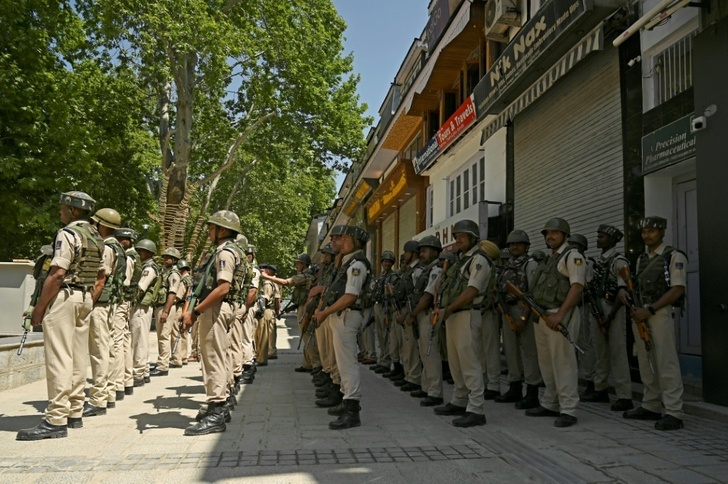A G20 tourism meeting was set to begin on Monday amid high security in Indian-administered Kashmir, with China and Pakistan condemning holding the event in the disputed territory.
Muslim-majority Kashmir has been disputed between New Delhi and Islamabad, both of which claim it in full, since their independence 75 years ago.
The Indian-controlled portion has been roiled for decades by an insurgency seeking independence or a merger with Pakistan, with tens of thousands of civilians, soldiers and Kashmiri rebels killed in the conflict.
Police said last week that security had been beefed up "to avoid any chance of terrorist attack during the G20" meeting, the first diplomatic event in the territory since New Delhi revoked its limited autonomy and took direct control in 2019.
The three-day gathering will take place at a sprawling, well-guarded venue on the shores of Dal Lake in Srinagar.
Roads leading to the location have been freshly black-topped, and electricity poles lit up in the colours of India's national flag to show what officials say is "normalcy and peace returning" to the region.
India has been promoting tourism in Kashmir and more than a million of its citizens visited last year.
No Chinese delegates will be attending the event.
India and its northern neighbour are locked in a military standoff along their mostly undemarcated border in the Ladakh region.
Beijing also claims the Indian state of Arunachal Pradesh in full as part of Tibet, and it considers Kashmir a disputed territory.
"China firmly opposes holding any form of G20 meeting in disputed territory and will not attend such meetings," foreign ministry spokesman Wang Wenbin told reporters Friday.
Turkey, Saudi Arabia and Indonesia are reportedly also unlikely to join.
India holds the G20 presidency for 2023 and has planned more than 100 meetings across the country.
China has already stayed away from events in both Ladakh and Arunachal Pradesh.
- Hundreds detained -
Non-G20 member Pakistan controls a smaller part of Kashmir and said holding the tourism meeting in the territory violated international law, UN Security Council resolutions and bilateral agreements.
Pakistan's foreign minister Bilawal Bhutto Zardari said last week that India was displaying its "arrogance to the world" and that "it shows their pettiness", triggering a sharp retort from New Delhi.
India accuses Pakistan of training and supporting militants in Kashmir, which Islamabad denies.
Since India's 2019 constitutional changes, rebels in Kashmir have largely been crushed -- although young men continue to join the insurgency.
But dissent has been criminalised, media freedoms curbed and public protests limited, in what critics say is a drastic curtailment of civil liberties by India.
Last week, the UN Special Rapporteur on Minority Issues, Fernand de Varennes, said New Delhi was seeking to use the G20 meeting to "portray an international seal of approval" on a situation that "should be decried and condemned". India rejected those comments.
Residents have chafed under the stepped-up security measures, hundreds have been detained in police stations and thousands including shopkeepers have received calls from officials warning them against any "signs of protest or trouble".
burs-qan/dva
© Agence France-Presse
Your content is great. However, if any of the content contained herein violates any rights of yours, including those of copyright, please contact us immediately by e-mail at media[@]kissrpr.com.
Source: Story.KISSPR.com

